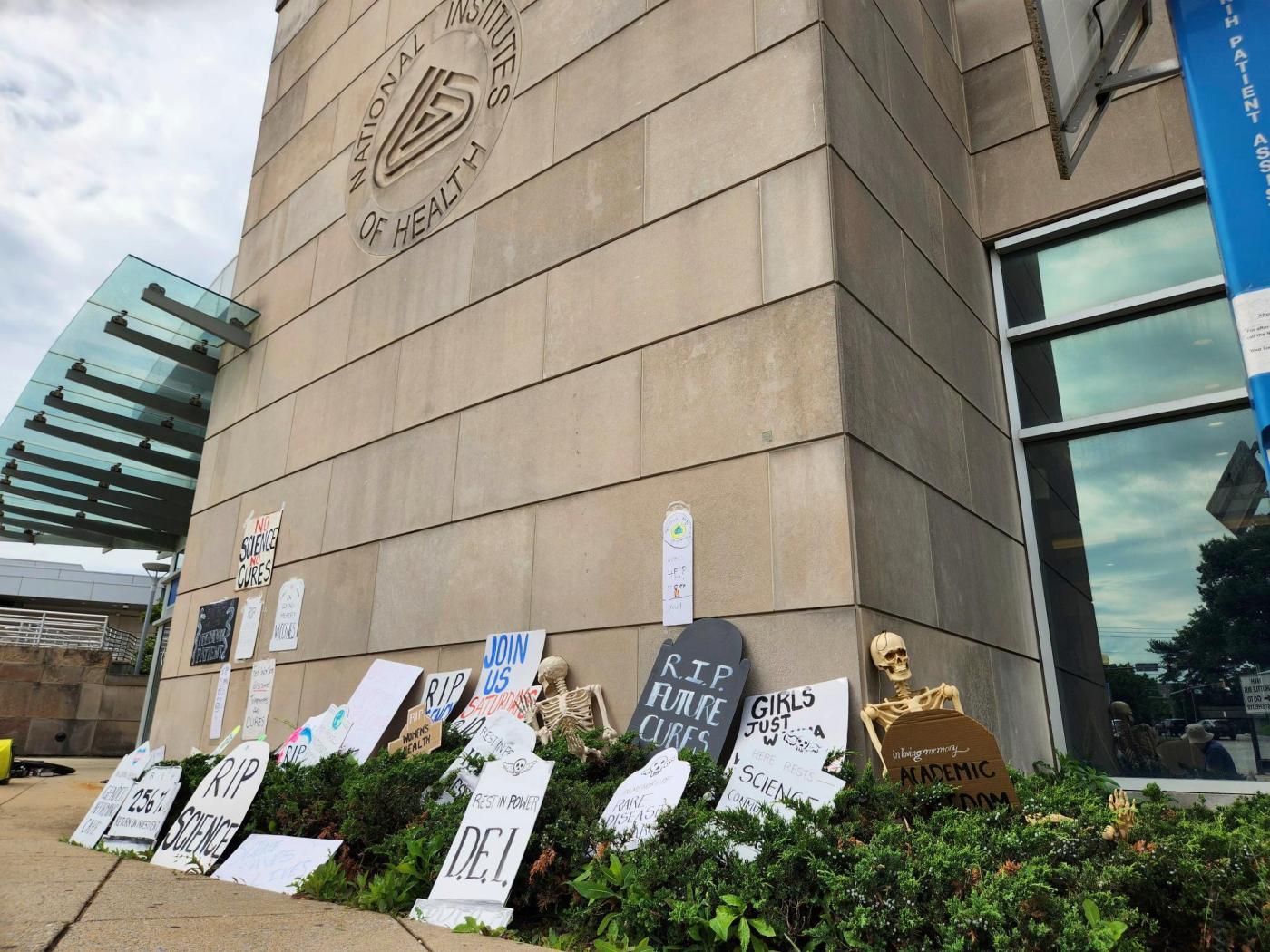Recent cuts to the National Institutes of Health (NIH) have sparked significant concern among families reliant on medical research for rare conditions. Parents, including those with children affected by PIK3CA-Related Overgrowth Spectrum (PROS), are voicing their distress over how these reductions may impact their loved ones’ health and future.
Rebecca Myers, a parent from Suffolk, highlighted the dire consequences of slashed funding. Her daughter suffers from PROS, a condition that can lead to abnormal tissue and blood vessel growth, along with severe health complications. Myers emphasized the importance of NIH research, stating, “Without NIH research, my family and so many others would not be able to continue to celebrate birthdays with their children.” She criticized Representative Jen Kiggans, asserting that her recent vote to cut essential services such as Medicaid and SNAP contradicts her professed commitment to families.
This sentiment reflects a broader frustration among constituents who feel that their representatives are failing to protect vital health services. Myers noted, “The attacks by this administration on science and health care is a direct attack on families like mine.” Families affected by such conditions are advocating for leadership that prioritizes their health and well-being.
In a separate but related context, discussions surrounding Virginia’s upcoming elections have turned contentious, with criticisms directed at Republican candidates. Questions have arisen regarding the positions of candidates like Winsome Earle-Sears, Jason Miyares, and John Reid on immigration and LGBTQ+ rights. Earle-Sears, a Jamaican immigrant, faced scrutiny over her responses to derogatory comments made by former President Donald Trump about immigrants. Similarly, Miyares’ stance on immigration enforcement and Reid’s views on same-sex marriage have drawn attention and criticism.
Constituents are increasingly vocal about their dissatisfaction with the perceived alignment of these candidates with controversial policies that may adversely affect Virginians’ livelihoods. Critics argue that the Republican party’s current trajectory could lead to thousands losing jobs and Medicaid coverage, which highlights the stakes of the upcoming elections.
In the realm of marketing and social commentary, American Eagle’s recent ad campaign featuring actress Sydney Sweeney has stirred debate. The tagline, “Sydney Sweeney has great jeans,” was interpreted by some as a clever play on words but also criticized by others as potentially insensitive. The controversy sparked discussions about beauty standards and marketing ethics, reflecting a broader cultural dialogue about representation.
Despite the backlash, American Eagle’s stock experienced a notable increase, marking its largest single-day gain since 2000. Polls indicate that a majority of U.S. adults, around 52%, found the advertisement’s wordplay acceptable, suggesting that consumer sentiment may not align with the critics’ views. The backlash has also highlighted the challenges faced by political parties, particularly the Democrats, in engaging younger male voters who may perceive such controversies as indicative of a disconnect from mainstream concerns.
As families and individuals navigate these complex issues, the need for clear communication and responsible leadership becomes increasingly evident. The intersection of health care, politics, and marketing continues to influence public discourse, prompting citizens to demand accountability and action from their elected officials.







































































